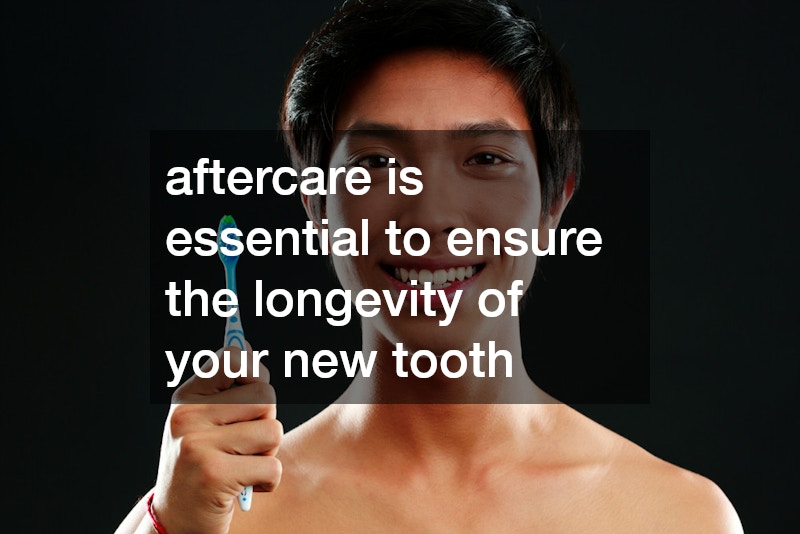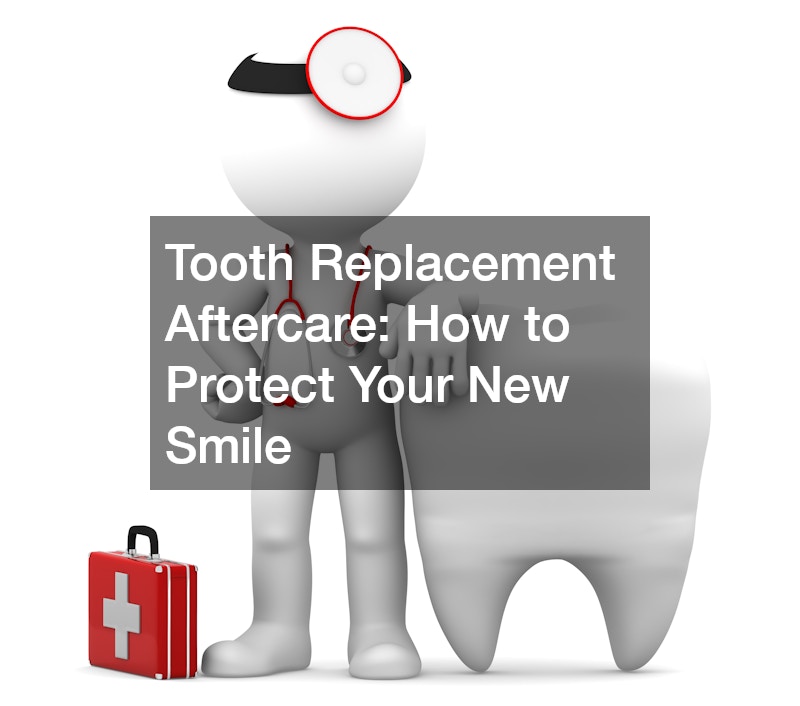Getting a tooth replacement is a transformative step toward restoring your smile, oral functionality, and confidence. Whether you’ve opted for a dental implant, bridge, or denture, proper aftercare is essential to ensure the longevity of your new tooth and the overall health of your mouth. While the initial procedure is crucial, what you do after the treatment plays a significant role in maintaining the results.
In this article, we’ll explore practical tips for tooth replacement aftercare to help you protect your investment and enjoy a healthy, radiant smile for years to come.
Why Aftercare Matters
Tooth replacement procedures are designed to restore the function and appearance of your teeth, but they also come with unique care requirements. Without proper maintenance, your replacement tooth could be at risk of damage, wear, or even failure in the case of dental implants.
Aftercare ensures:
Long-lasting results: Regular care extends the life of your dental restoration.
Healthy gums: Gums provide the foundation for your replacement tooth and require special attention.
Oral hygiene: Cleanliness prevents infections, decay in surrounding teeth, and gum disease.
Aftercare Tips Based on Tooth Replacement Type
Each type of tooth replacement has its own care routine. Here’s how to maintain dental implants, bridges, and dentures:
1. Dental Implants
Dental implants are one of the most durable tooth replacement options, often lasting decades with proper care. However, they still require routine maintenance.
Maintain Oral Hygiene: Brush twice daily with a soft-bristled toothbrush and use non-abrasive toothpaste to avoid damaging the implant crown.
Floss Regularly: Use floss or an interdental brush to clean around the implant. Water flossers can also be effective for removing plaque and food debris.
Schedule Dental Check-ups: Visit your dentist every six months to monitor the health of your implant and surrounding tissue.
Avoid Hard Foods: While implants are strong, consistently biting down on hard objects like ice or popcorn kernels can cause damage.
2. Dental Bridges
Bridges rely on adjacent teeth for support, making it crucial to care for the entire structure.
Clean Under the Bridge: Use special floss threaders or water flossers to clean beneath the false tooth (pontic) and around the supporting teeth.
Prevent Gum Issues: Gums around the bridge should remain healthy. Rinse with an antibacterial mouthwash to reduce bacteria buildup.
Mind Your Diet: Avoid sticky or overly hard foods that might loosen or damage the bridge.
3. Dentures
Dentures, whether full or partial, require daily cleaning and periodic adjustments to ensure a comfortable fit.
Remove and Clean Daily: Take out your dentures every night and clean them thoroughly. Use a soft brush and denture cleaner instead of regular toothpaste, which can be too abrasive.
Soak Overnight: Store your dentures in a cleansing solution or water to prevent them from drying out or warping.
Care for Your Gums: Even if you wear full dentures, your gums need regular cleaning. Use a soft brush to massage and clean your gums.
Handle with Care: Dentures can break if dropped. Handle them over a towel or sink filled with water for added protection.
General Tips for Tooth Replacement Aftercare
No matter which tooth replacement option you choose, these general aftercare practices are vital:
1. Prioritize Oral Hygiene
Brushing and flossing are non-negotiable for keeping your mouth healthy. Replacement teeth, whether permanent or removable, can accumulate plaque and bacteria just like natural teeth. Use fluoride toothpaste and rinse with an alcohol-free mouthwash to maintain optimal oral hygiene.
2. Protect Against Grinding
Bruxism, or teeth grinding, can damage replacement teeth. If you grind your teeth, speak with your dentist about getting a custom night guard to protect your dental work.
3. Avoid Tobacco Products
Smoking or using tobacco can compromise gum health, slow healing, and increase the risk of complications with implants or other replacements. Quitting is essential for maintaining a healthy smile.
4. Stay Hydrated
A dry mouth can increase the risk of decay and discomfort, especially for denture wearers. Drink plenty of water and consider sugar-free gum or lozenges to stimulate saliva production.
5. Stick to Regular Check-Ups
Routine visits to your dentist are critical for spotting potential issues early. Your dentist can professionally clean your replacement teeth, adjust them as needed, and address any concerns before they become major problems.
What to Watch Out For
Even with diligent care, problems can arise. Contact your dentist if you notice any of the following:
Persistent pain or discomfort around the replacement tooth.
Signs of infection, such as swelling or redness.
Loosening of the replacement tooth or dentures.
Difficulty eating or speaking.
Prompt attention to these issues can prevent further complications and ensure that your tooth replacement continues to function effectively.
Conclusion
After investing in a tooth replacement, proper aftercare is key to preserving your new smile. Whether you have dental implants, bridges, or dentures, following tailored maintenance routines will enhance their longevity and keep your oral health in top shape.
By brushing regularly, attending dental check-ups, and being mindful of your diet and habits, you can protect your tooth replacement and enjoy the confidence of a beautiful, healthy smile for years to come. Remember, a little care goes a long way toward safeguarding your dental investment!
.







